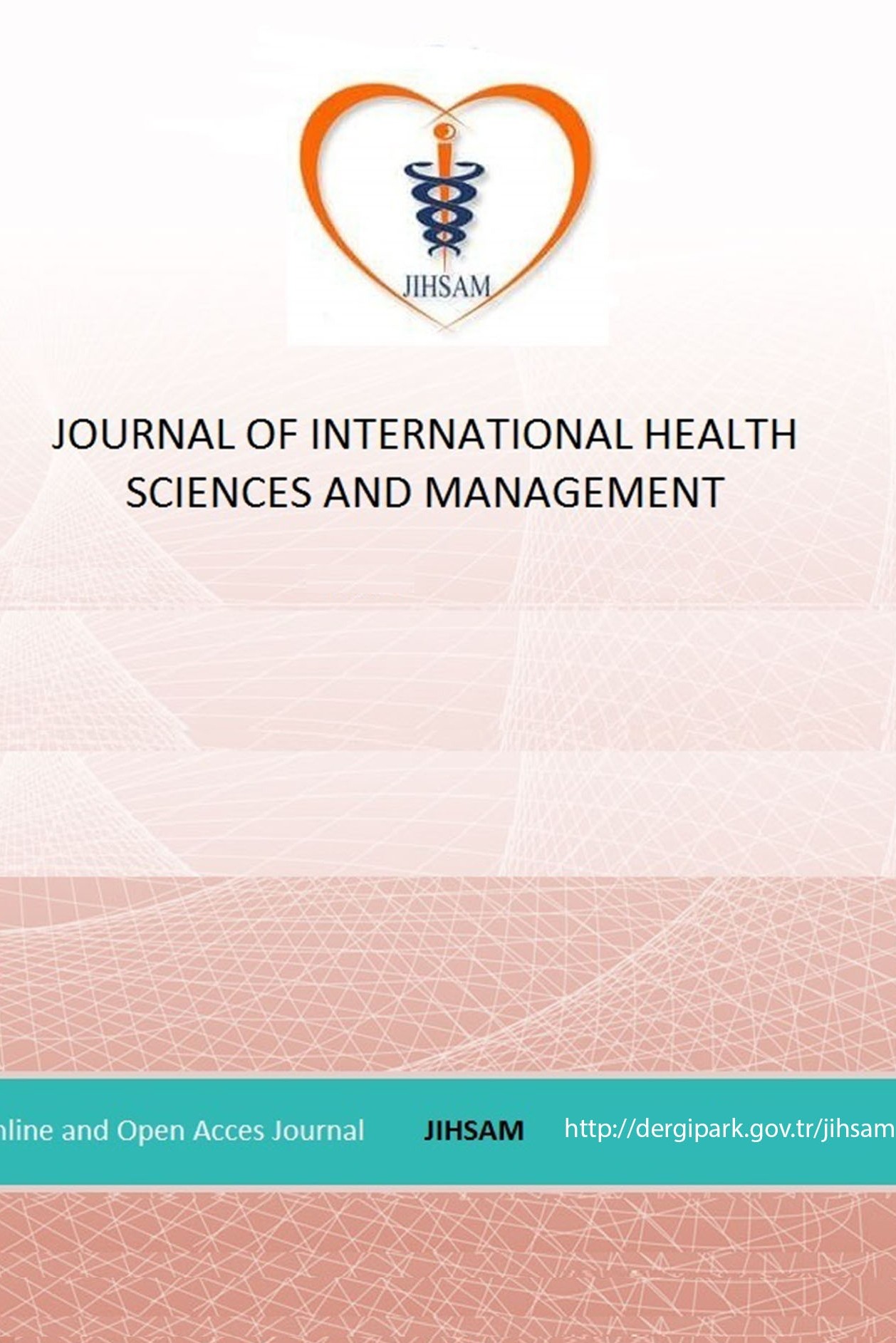Management of the COVID-19 Health Crisis in the World; An Evaluation on Centralization and Decentralization Practices
Management of the COVID-19 Health Crisis in the World; An Evaluation on Centralization and Decentralization Practices
Health, COVID-19, health managment health policy, decentralization,
___
- Asmorowati, S., Schubert, V., & Ningrum, A. P. (2021). Policy capacity, local autonomy, and human agency: Tensions in the intergovernmental coordination in Indonesia’s social welfare response amid the COVID-19 pandemic. Journal of Asian Public Policy, 1-15.
- Antwi-Boasiako, J., & Nyarkoh, E. (2021). Government Communication during the Covid- 19 Pandemic in Ghana. International Journal of Public Administration, 44(13), 1175- 1188.
- Baş, K., Sur, H., (2021). Sağlık hizmetlerinde desantralizasyon ve Türkiye’deki uygulamları. SDÜ Sağlık Yönetimi Dergisi, 3(2), 79-97.
- Bankauskaite, V. and Saltman, R.B. (2007). Decentralization İn Health Care. Figueras, J. McKee, M. Mossialos, E. and and Saltman, R.B. (Ed.). Chapter in; Strategic Dimensi ons; Central İssues in the Decentralization Debate (p.9-21). European Observatory on Health Systems and Policies Series: First Published 2007: Open University Press: 1-293
- Casula, M., & Pazos-Vidal, S. (2021). Assessing the Multi-level Government Response to the COVID-19 Crisis: Italy and Spain Compared. International Journal of Public Administration, 44(11-12), 994-1005.
- Capano, G., & Lippi, A. (2021). Decentralization, policy capacities, and varieties of first health response to the COVID-19 outbreak: evidence from three regions in Italy. Journal of European Public Policy, 28(8), 1197-1218.
- Cheema, G.S. and Rondinelli, D.A. (2007). From government decentralization to decentralized governance. D.A. Rondinelli and G.S.Cheema (Ed.). cahpter in decentralizing governance: emerging concepts and practices, (p.1-20), Washington: Brookings Institution Press.
- Choutagunta, A., Manish, G. P., & Rajagopalan, S. (2021). Battling COVID‐19 with dysfunctional federalism: lessons from India. Southern Economic Journal, 87(4), 1267- 1299.
- Das, A., Roy, S., Parvez, M. S., & Hasan, M. M. U. (2021). Decentralized activity centers in rural Bangladesh: A step towards effective emergency situation management in the post-pandemic cities. Journal of Urban Management, 10(3), 242-254.
- De Silva, O. L., Lasaulce, S., & Morărescu, I. C. (2021). On the efficiency of decentralized epidemic management and application to Covid-19. IEEE Control Systems Letters, 6, 884-889.
- Goschin, Z., & Dimian, G. C. (2021). Healthcare under pressure: modelling COVID-19 fatalities with multiscale geographically weighted regressions. Kybernetes. Doi:10.1108/K-07-2021-0548
- Hayran, O. (2017). Sağlık reformlarının başarısı açısından desentralizasyon- resantralizasyon döngüsü ve ülkemizdeki son durum. J Biotechnol and Stratejic Healt Res.,1: 1-6.
- Hussain, S., Hali, S. M., Ahmad, R., Iqbal, S., & Iftikhar, H. (2021). Fiscal decentralization and poverty alleviation: A case study of Pakistan. Poverty & Public Policy, 13(2), 139-154.
- Lele, G. (2021). Concurrency as crisis decision-making governance: Lessons from Indonesia's response to the COVID-19 pandemic. Regional & Federal Studies, 1-26.
- Mauro, M., & Giancotti, M. (2021). Italian responses to the COVID-19 emergency: Overthrowing 30 years of health reforms?. Health Policy, 125(4), 548-552.
- Parker, R., & Ferraz, D. (2021). Politics and pandemics. Global Public Health, 16(8-9), 1131-1140.
- Sudhipongpracha, T., & Poocharoen, O. O. (2021). Community health workers as street- level quasi-bureaucrats in the COVID-19 Pandemic: The cases of Kenya and Thailand. Journal of Comparative Policy Analysis: Research and Practice, 23(2), 234- 249.
- Terlizzi, A. (2018). health system decentralization and recentralization in Italy: Ideas, Discourse, and İnstitutions Social Policy & Administration, 2018;1-15. Doi: 10.1111/spol.12458
- Van Nguyen, H., Debattista, J., Pham, M. D., Dao, A. T. M., Gilmour, S., Nguyen, H. L., et al., (2021). Vietnam's healthcare system decentralization: How well does it respond to global health crises such as COVID-19 pandemic?. Asia Pacific Journal of Health Management, 16(1), 47-51.
- Yang, K. (2020). Unprecedented challenges, familiar paradoxes: COVID‐19 and governance in a new normal state of risks. Public Administration Review, 80(4), 657-664.
- Yayın Aralığı: Yılda 2 Sayı
- Başlangıç: 2015
- Yayıncı: Sedat BOSTAN
THE EFFECT OF THE ECONOMIC CRISES AFTER 2000 ON PRIVATE HOSPITALS IN TURKEY
Çiğdem Müge HAYLI, Nazım BERATLI, Mira GÖKDOĞAN
Mustafa Savaş TORLAK, Halil TÜRKTEMİZ
Arzu COŞKUN, Efdal OKTAY GULTEKİN, Tiinçe AKSAK
Seda Tuğba BAYKARA MAT, Çisem BAŞTARCAN, Okan Anil AYDİN, Kadir ÇALIŞKAN
Şeyma KALKUZ, Fatma YÜKSELİR ALASIRT, Figen DIĞIN, Yeliz MERCAN
EVALUATION OF AGGRESSION MANAGEMENT TRAINING FOR NURSING STUDENTS: A QUASI-EXPERIMENTAL STUDY
Elvan Emine ATA, Emel BAHADIR YILMAZ
DIGITAL TECHNOLOGY USE IN TURKEY AND THE NEED FOR NEW eHEALTH LITERACY MEASUREMENT TOOLS
Amira BOSHRA, Sharifa ALASİRY, Elsadig Y. MOHAMED, Sawsan ABDALLA, Mehrunnisha AHMED, Faizan KASHOO
